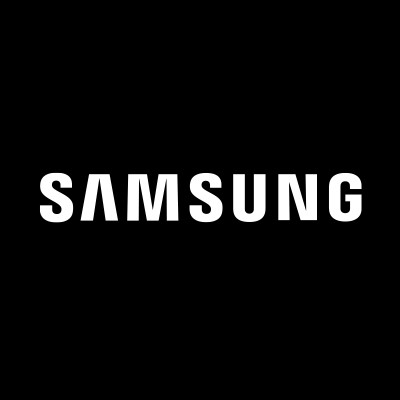Trump Mobile: A New Venture or Just a Name?
June 18, 2025, 10:17 am

Location: United States, California, San Francisco
Employees: 10001+
Founded date: 1938
Total raised: $6.4B

Location: United States, California, Cupertino
Employees: 10001+
Founded date: 1976
Total raised: $100M
On June 16, 2025, the Trump Organization unveiled its latest venture: Trump Mobile. This new mobile service and its accompanying $499 smartphone aim to carve a niche in the crowded U.S. telecommunications market. The launch took place at Trump Tower in Manhattan, a fitting backdrop for a brand that thrives on visibility and recognition.
Trump Mobile is positioned as an alternative to the major players in the industry—Verizon, AT&T, and T-Mobile. These giants dominate over 95% of the market. The new service will utilize the networks of these carriers, but it’s unclear how much of a dent it can make in a market already saturated with options. The Trump brand is a double-edged sword. It attracts attention, but it also polarizes consumers.
The announcement promises call centers based in the U.S. and a smartphone manufactured domestically. However, skepticism looms large. The smartphone industry is fiercely competitive, with Apple and Samsung leading the charge. The claim of a $499 price tag for a U.S.-made phone raises eyebrows. Industry experts are already dubbing it "vaporware," a term used for products that sound good on paper but rarely materialize.
The Trump Organization has a history of licensing deals that have not always panned out. From Trump Vodka to Trump University, many ventures have fizzled. This new mobile service is another attempt to leverage the Trump name for profit. The family business seems to view the presidency as a vehicle for wealth accumulation. Critics argue that this venture is just another example of that mindset.
The mobile virtual network operator (MVNO) model is gaining traction. MVNOs buy network capacity from major carriers and sell it to consumers. They often target niche markets, which is where Trump Mobile aims to position itself. However, the MVNO market is small, accounting for only 3-4% of U.S. wireless subscriptions. High customer churn rates make profitability a challenge. Analysts suggest that unless Trump Mobile can attract a million subscribers, its financial impact will be minimal.
The smartphone market is another beast entirely. Most devices sold in the U.S. are manufactured overseas. Only one company, Purism, produces smartphones domestically, and their products start at $1,999. The idea that Trump Mobile can offer a competitively priced, U.S.-made phone seems far-fetched. The CEO of Purism has already expressed doubts about the feasibility of such a product at the proposed price point.
Trump Mobile's marketing strategy seems to target conservative consumers. The branding is likely to resonate with those who feel alienated by mainstream tech companies. This could provide a unique selling proposition. However, the political landscape is a double-edged sword. Half of the potential market may be alienated simply due to the brand's association with Donald Trump.
The launch comes at a time when consumers are increasingly price-sensitive. Major brands like Apple and Samsung have seen their prices soar, creating an opening for more affordable alternatives. Trump Mobile aims to fill that gap. But will consumers choose a phone based on political affiliation? The answer remains uncertain.
Experts are divided on the potential impact of Trump Mobile. Some believe it could shake up the market, while others see it as a long shot. The telecom industry is known for its "stickiness," meaning customers tend to stay with their providers. This loyalty could hinder Trump Mobile's growth.
In a world where technology evolves rapidly, the challenge is not just to enter the market but to sustain growth. Consistency in service and network reliability will be crucial. Without these, even the most recognizable name may struggle to gain traction.
The Trump Organization has not disclosed key details about its partners or the financial terms of the licensing deal. Transparency is vital for consumer trust, especially in a market where skepticism is high. The lack of information raises questions about the venture's viability.
As the launch date approaches, the spotlight will be on Trump Mobile. Will it be a game-changer or just another footnote in the Trump business saga? The stakes are high, and the outcome remains to be seen.
In conclusion, Trump Mobile represents a bold attempt to enter a saturated market. It leverages the Trump name, but that may not be enough. The challenges are steep, and the competition is fierce. Whether this venture will succeed or fail is a question that only time will answer. For now, it stands as a testament to the ongoing intersection of politics and business in America. The future of Trump Mobile is uncertain, but one thing is clear: it will be watched closely.
Trump Mobile is positioned as an alternative to the major players in the industry—Verizon, AT&T, and T-Mobile. These giants dominate over 95% of the market. The new service will utilize the networks of these carriers, but it’s unclear how much of a dent it can make in a market already saturated with options. The Trump brand is a double-edged sword. It attracts attention, but it also polarizes consumers.
The announcement promises call centers based in the U.S. and a smartphone manufactured domestically. However, skepticism looms large. The smartphone industry is fiercely competitive, with Apple and Samsung leading the charge. The claim of a $499 price tag for a U.S.-made phone raises eyebrows. Industry experts are already dubbing it "vaporware," a term used for products that sound good on paper but rarely materialize.
The Trump Organization has a history of licensing deals that have not always panned out. From Trump Vodka to Trump University, many ventures have fizzled. This new mobile service is another attempt to leverage the Trump name for profit. The family business seems to view the presidency as a vehicle for wealth accumulation. Critics argue that this venture is just another example of that mindset.
The mobile virtual network operator (MVNO) model is gaining traction. MVNOs buy network capacity from major carriers and sell it to consumers. They often target niche markets, which is where Trump Mobile aims to position itself. However, the MVNO market is small, accounting for only 3-4% of U.S. wireless subscriptions. High customer churn rates make profitability a challenge. Analysts suggest that unless Trump Mobile can attract a million subscribers, its financial impact will be minimal.
The smartphone market is another beast entirely. Most devices sold in the U.S. are manufactured overseas. Only one company, Purism, produces smartphones domestically, and their products start at $1,999. The idea that Trump Mobile can offer a competitively priced, U.S.-made phone seems far-fetched. The CEO of Purism has already expressed doubts about the feasibility of such a product at the proposed price point.
Trump Mobile's marketing strategy seems to target conservative consumers. The branding is likely to resonate with those who feel alienated by mainstream tech companies. This could provide a unique selling proposition. However, the political landscape is a double-edged sword. Half of the potential market may be alienated simply due to the brand's association with Donald Trump.
The launch comes at a time when consumers are increasingly price-sensitive. Major brands like Apple and Samsung have seen their prices soar, creating an opening for more affordable alternatives. Trump Mobile aims to fill that gap. But will consumers choose a phone based on political affiliation? The answer remains uncertain.
Experts are divided on the potential impact of Trump Mobile. Some believe it could shake up the market, while others see it as a long shot. The telecom industry is known for its "stickiness," meaning customers tend to stay with their providers. This loyalty could hinder Trump Mobile's growth.
In a world where technology evolves rapidly, the challenge is not just to enter the market but to sustain growth. Consistency in service and network reliability will be crucial. Without these, even the most recognizable name may struggle to gain traction.
The Trump Organization has not disclosed key details about its partners or the financial terms of the licensing deal. Transparency is vital for consumer trust, especially in a market where skepticism is high. The lack of information raises questions about the venture's viability.
As the launch date approaches, the spotlight will be on Trump Mobile. Will it be a game-changer or just another footnote in the Trump business saga? The stakes are high, and the outcome remains to be seen.
In conclusion, Trump Mobile represents a bold attempt to enter a saturated market. It leverages the Trump name, but that may not be enough. The challenges are steep, and the competition is fierce. Whether this venture will succeed or fail is a question that only time will answer. For now, it stands as a testament to the ongoing intersection of politics and business in America. The future of Trump Mobile is uncertain, but one thing is clear: it will be watched closely.